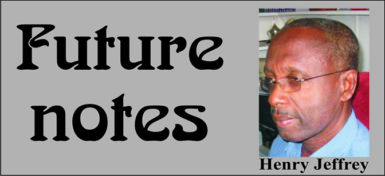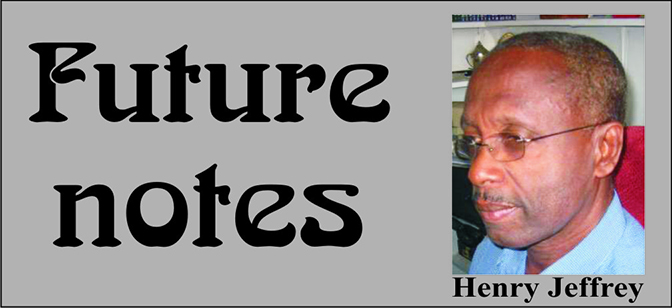
‘Libertarians’, the author of the above-quoted article, continued, ‘argue that before man entered into society, he enjoyed certain inalienable rights – the right to life, liberty and property’ and when this is associated with the notion of a social contract, libertarianism takes its cue from John Locke, the darling of the rising bourgeoisie. For him ‘Government has no other end but the preservation of property.’ … ‘T]he great end of men’s entering into society [is] the enjoyment of their properties in peace and safety.’ With most quotations coming from Locke’s Second Treatise of Civil Government (1690), on the beginning of political society’, let us try to decipher what he actually said in relation to the purpose, establishment and management of the state and then try to apply this to Guyana.
Whether real or imagined, the contract theorists stated that human beings first existed in a so-called ‘state of nature’; without political organisation. For John Locke, in the state of nature humans were in ‘a state of perfect freedom to order their actions, and dispose of their possessions and persons, as they think fit, within the bounds of the law of nature.’ The law of nature is ‘common to them all, and all the rest of mankind are one community, make up one society, distinct from all other creatures.’
The social contract was necessary to establish a civil state with civil laws to compel men where they failed to comply with the law of nature. ‘For though the law of nature be plain and intelligible to all rational creatures; yet men being biased by their interest, as well as ignorant for want of study of it, are not apt to allow of it as a law binding to them in the application of it to their particular cases.’ With civil laws came the need for an impartial judge, for ‘[p]assion and revenge is very apt to carry them (citizens) too far, and with too much heat, in their own cases.’ Finally, there must be an executive power to back the decisions made by such a judge and the other civil arms of the new state.
To achieve these ends, man give up entirely to the new state his natural rights to judge and punish those who break the law but his other natural rights are only relinquished ‘to the extent that the preservation of himself, and the rest of that society shall require.’ Any person ‘who attempts to get another man into his absolute power, does thereby put himself into a state of war with him.’ Similarly, ‘[a] government or sovereign that claims absolute power over its subjects exists in a state of nature (i.e. a state of war) with respect to those who are under its dominion.’ John Locke thus limited governmental authority to what it takes to preserve life, liberty, and property for all human beings.
Now, how are the decisions to establish the social contract and govern the new society to be made? According to Locke, ‘when any number of men have, by the consent of every individual, made a community, they have thereby made that community one body, with a power to act as one body, which is only by the will and determination of the majority.’ The original social contract is to be based upon unanimity: ‘the consent of every individual.’ It is once the contract is agreed and the new society is formed that majority rule kicks in as the means of taking collective social decisions. Let us now apply what we understand to real life conditions.
Imagining what life in the state of nature must have been, Locke and his compatriots were theorizing initial government formation and human rights in a largely homogenous European setting. Humans have originally lived as paternal/maternal ethnic tribes not as individuals but let us allow that in this ‘state of nature’ their condition was ‘poor, nasty, brutish and short’ and so they did unanimously agree to establish government and in Locke’s scheme of things also agreed that the affairs of the new association will be managed according to majority rule. Utilising this principle what should occur where two historically contiguous but occasionally warring tribes see economic advantage in forming one civil state because one group lives in an area that controls the vital water supply and the other in the area with the more fertile land if only it could be properly irrigated. How should the decision to form this federation be made? By everyone in both tribes agreeing, two tribal referenda or by the tribal representatives Richardson’s lawyers and their libertarian associates will want referenda: they abhor representation on fundamental issues and unanimity would be impossible to achieve.
Now let us imagine that one tribe is numerically larger than the other but not sufficiently so as to have been able to physically suppress it. Before they agree to federate what chances do you give to the smaller state agreeing that the new arrangement will be governed by majority rule? None! Every practical example of this kind of standoff suggests that for the project to succeed, some compromise will have to be made. Today, international society is a ‘state of nature’, living with the fiction that all states are sovereign and equal. The framers of the American Constitution had to confront this reality, partly by giving each state, regardless of its size, two representatives in the senate and devising rules that have allowed Donald Trump to become president without winning a majority of the popular vote.
Conditions in Guyana approximate to the reality where there is to all intents and purposes no one political people but historically two warring political ethnicities. Evidence of this is that based mainly on ethnic allegiances, until 2011, the PPP/C alone was able to gain a majority at national elections and only narrowly lost it in 2015. In Guyana to speak of going to the people: meaning that the collective as a whole must make important political decisions by way referenda, usually a majoritarian instrument is to place the minority group at a tremendous disadvantage. In our context a 2/3 majority of parliamentary representatives, is not only more difficult to attain, it will philosophically best represent going to ‘the people.’ Theory must be properly contextualized when it is being transferred and thus, instead of a referendum, a 2/3 majority might well be considered the highest level of constitutional entrenchment at this stage of Guyana’s political development.






